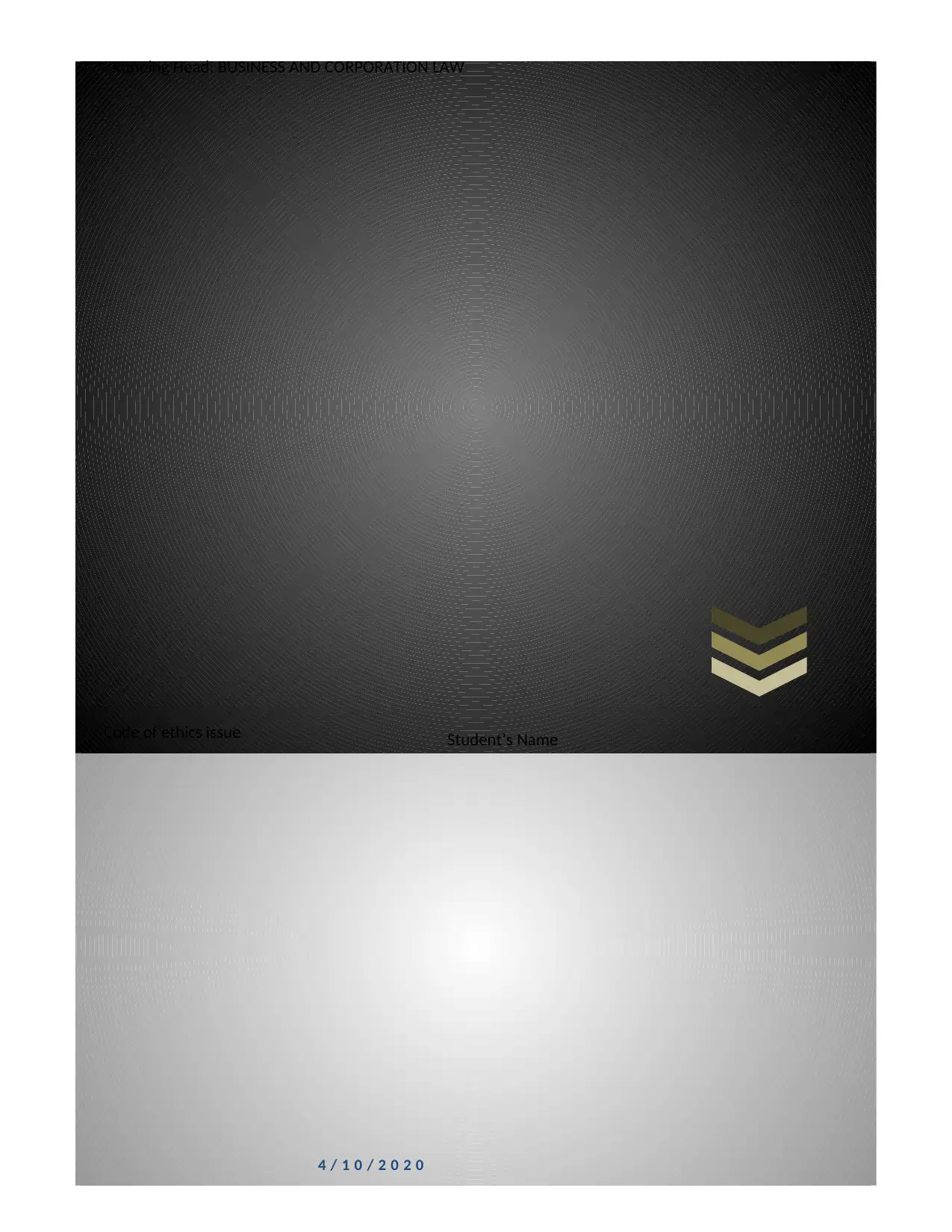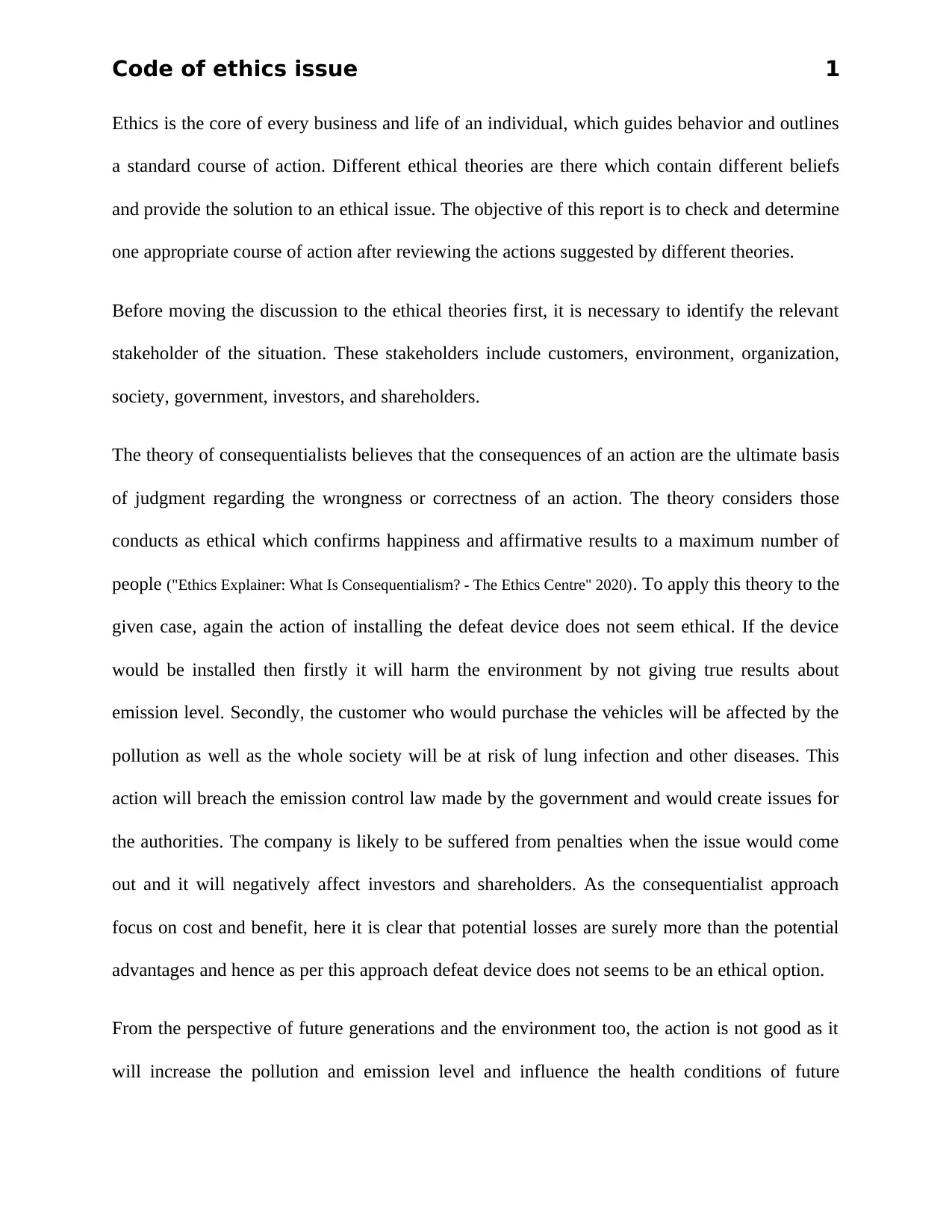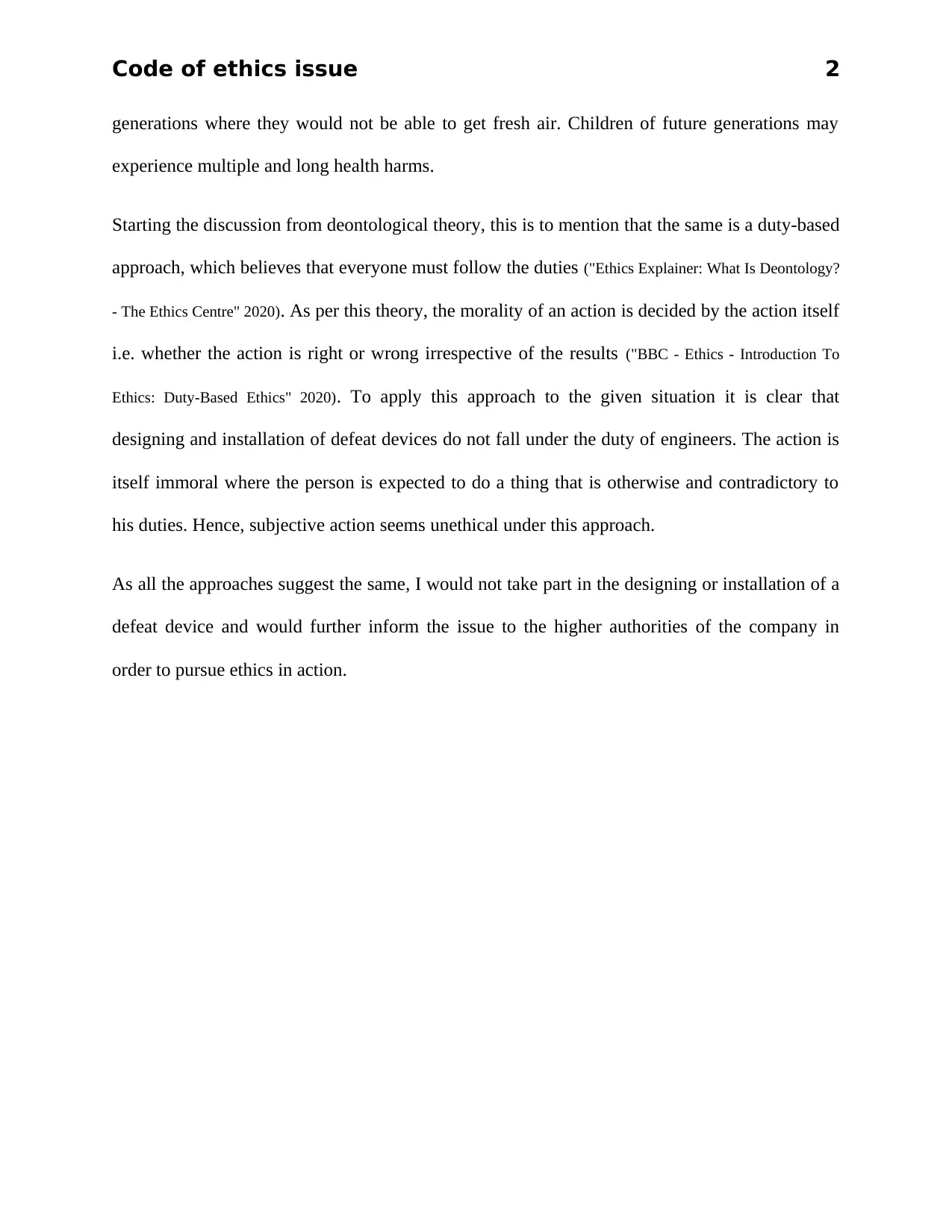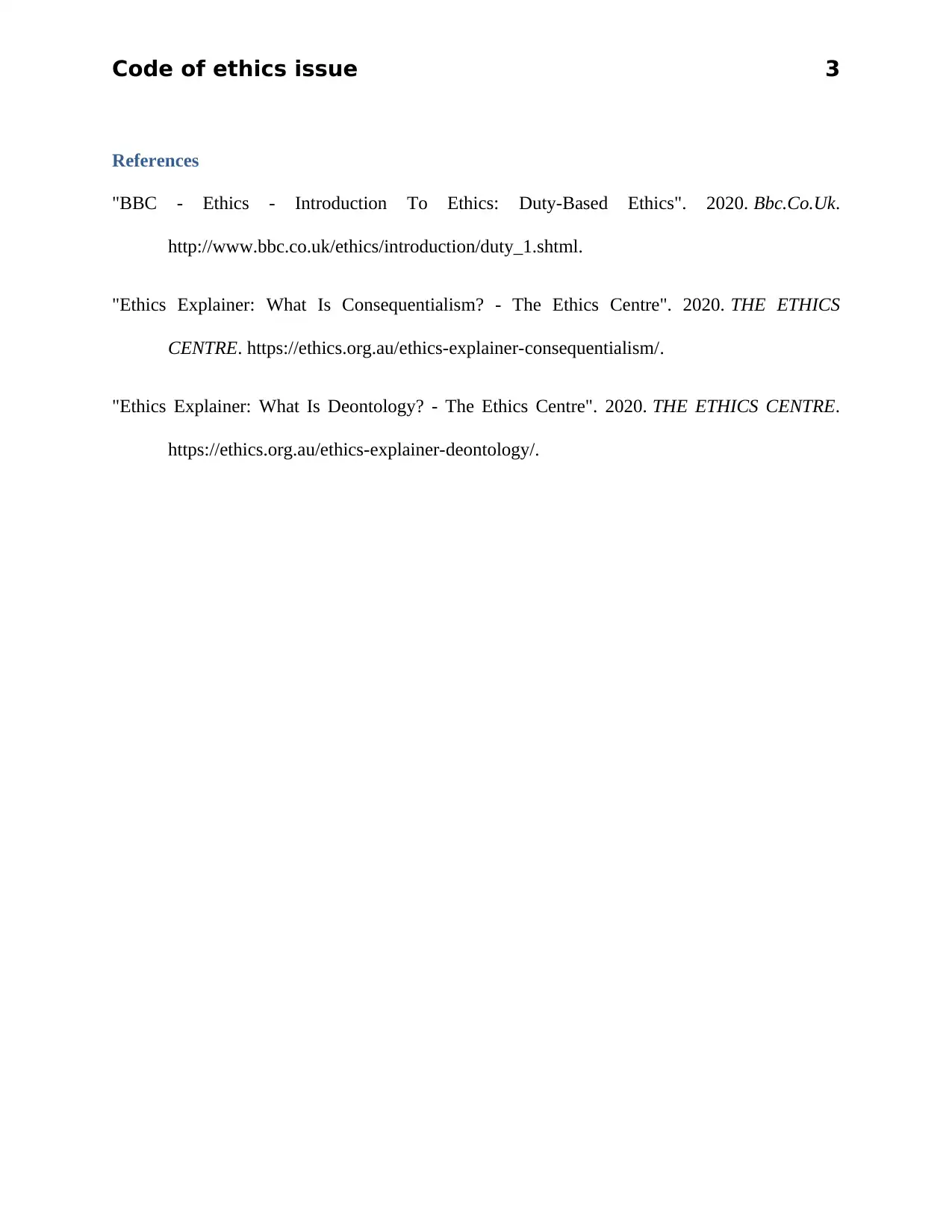Business and Corporation Law - Code of Ethics Issue Analysis Report
VerifiedAdded on 2022/09/15
|4
|678
|23
Report
AI Summary
This report analyzes a code of ethics issue faced by a junior engineer at VW, who is asked to participate in the design and installation of a 'defeat device'. The report begins by identifying the relevant stakeholders, including customers, the environment, the organization, society, government, investors, and shareholders. It then applies two ethical theories: consequentialism and deontology. The consequentialist analysis examines the consequences of installing the device, concluding that the potential losses (environmental harm, health risks, legal penalties) outweigh the potential advantages. The deontological analysis, which is duty-based, argues that designing and installing the device is unethical because it violates the engineer's duties. The report also considers the impact on future generations and the environment, finding the action detrimental. The engineer's conclusion is not to participate in the design or installation of the defeat device and to inform higher authorities, adhering to ethical principles in action.
1 out of 4









![[object Object]](/_next/static/media/star-bottom.7253800d.svg)